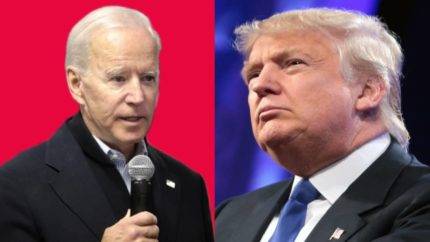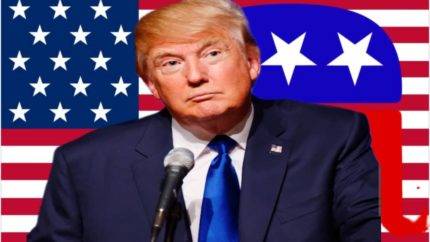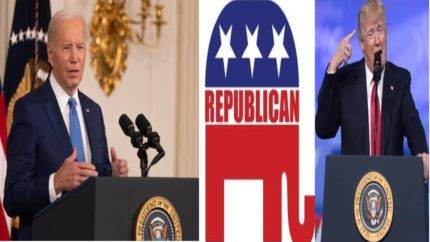Fueling the Political Firestorm, Biden’s Choice of Words
The MAGA community is engulfed in indignation following the revelation of a purported private nicknames used by President Joe Biden for his predecessor, Donald Trump. In a recent exposè by Politico, it was disclosed that behind closed doors, Biden allegedly labels Trump as a “sick fuck” during confidential conversations with his inner circle. This unexpected disclosure has set ablaze discussions not only within political spheres but also among the broader public, raising questions about the appropriateness of such explicit language coming from the highest office in the nation. The fallout from this leaked information is likely to influence ongoing debates about the decorum expected from a sitting president and the impact such revelations may have on the political landscape.
The aftermath of the leaked nickname has sent shockwaves through political circles, prompting heated debates on the acceptability of President Biden’s choice of language. As the MAGA community expresses its fury, the controversy surrounding Biden’s characterization of Trump adds a new layer of tension to an already polarized political climate. Beyond the mere gossip element, this revelation raises important questions about the boundaries of presidential discourse and the impact of personal opinions on public perception. The unfolding discourse will likely shape public opinion and contribute to the ongoing scrutiny of leaders’ verbal conduct, emphasizing the broader implications of private conversations on the public stage.
Public Reaction and Agreement
President Biden’s choice of words sparks a polarizing public response. While some criticize the language as inappropriate for the presidential office, others argue in favor, contending that the chosen nickname might resonate with a specific demographic. This controversy not only draws attention to the immediate matter at hand but also fuels a broader conversation surrounding the standards of civility in political discourse. The incident prompts reflection on the boundaries of acceptable language for leaders holding public office, becoming a focal point for those concerned about the tone and decorum in political communication.
Amidst the diverging opinions, the controversy serves as a catalyst for examining the delicate balance between freedom of expression and maintaining a respectful tone in public discourse. This incident highlights the complexities of navigating political communication, shedding light on the ongoing debate about the appropriate use of language by leaders. As society engages in discussions sparked by these events, the broader implications for the norms governing political speech take center stage, emphasizing the significance of maintaining civility and decorum in the realm of public office.

Sources Confirm Biden’s Usage
In a startling revelation, multiple credible sources close to President Biden have come forward, shedding light on his frequent use of the term “sick f” when discussing former President Trump. The unprecedented nature of these disclosures adds a layer of credibility to Politico’s report, as individuals with direct proximity to the President attest to hearing such language firsthand. This not only provides a rare glimpse into the private conversations of political figures but also prompts a critical examination of the delicate balance between transparency and confidentiality within the corridors of power.
The emergence of these accounts raises pertinent questions about the ramifications for diplomatic relations, as the use of such explicit language by a sitting President may have far-reaching consequences. As this revelation reverberates through political circles, it underscores the challenges of maintaining discretion in high-stakes discussions. The potential impact on international affairs remains uncertain, fueling debates on the intersection of personal expressions and the responsibilities of public office.
Contextualizing the Nickname
In the aftermath of the controversy surrounding Donald Trump, a fervent debate ensues over the appropriateness of his nickname, stirring discussions on whether it aligns with the allegations leveled against him. Critics assert that the moniker aptly characterizes Trump as a confirmed sexual predator with perceived fascist inclinations. This contention sparks a deeper exploration into the communication strategies employed by leaders when addressing their political adversaries, especially in instances involving grave accusations and subjective character assessments. As the discourse unfolds, the narrative invites reflection on the nuanced dynamics of political rhetoric and the implications it holds for public perception.
The controversy surrounding Trump’s nickname not only delves into the individual case but also serves as a catalyst for a broader examination of the language leaders use to depict their political opponents. This exploration takes center stage, shedding light on the intricacies of communication amid serious allegations and character judgments. The ensuing conversations navigate the fine line between political critique and personal vilification, offering insights into the delicate balance leaders must strike when shaping public discourse about their rivals. In the complex realm of political communication, this controversy becomes a microcosm, prompting a nuanced evaluation of how leaders navigate and contribute to the broader socio-political narrative.

Biden’s Additional Remarks
The report delves beyond the controversial “sick fuck” label, uncovering another instance where President Biden referred to Trump as a “fucking asshole.” This disclosure not only amplifies the intensity of the discourse but also injects further heat into the ongoing debates about presidential decorum. The use of explicit language by a sitting president raises eyebrows, prompting critics to question the appropriateness of such expressions for the leader of the nation. Simultaneously, supporters argue that Biden’s unfiltered language may connect with a segment of the electorate, sparking a polarizing dialogue on the evolving norms of political communication.
As discussions around presidential conduct gain momentum, the report’s exposure of Biden’s candid remarks adds a layer of complexity to the broader conversation. The revelation invites scrutiny into the evolving standards of political discourse, prompting a critical examination of whether such unfiltered expressions align with the expectations of the nation’s leader. This candid language not only fuels debates on the appropriateness of presidential communication but also underscores the deep-seated divisions among the electorate, as opinions diverge on whether Biden’s unfiltered approach is a refreshing departure from traditional political rhetoric or a breach of expected decorum.
Trump’s Response and Calls for Unity
Donald Trump emerges from his silence to address the alleged nicknames thrown at him by Biden. The former president’s response takes center stage, highlighting a critical exchange between the two leaders. Trump, in his reaction, not only counters the personal attacks but also critiques Biden, accusing him of lacking the decorum befitting the presidential office. This confrontational moment amplifies the existing political tensions, contributing to the larger narrative of division in American politics.
The aftermath of Trump’s response prompts a collective call for unity, emphasizing the need for leaders to transcend personal conflicts and prioritize the nation’s welfare. Amidst the clamor for unity, voices resonate, urging politicians to set aside animosities and concentrate on common ground for the greater good of the country. This incident serves as a turning point, shedding light on the deep-seated polarization within American politics, and emphasizes the pressing need for a shared commitment to unity in order to navigate the challenges that lie ahead.
Table of Contents
Discover more from OGM News NG
Subscribe to get the latest posts sent to your email.














